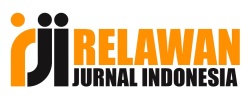Teacher Perceptions of the Effectiveness of Implementing the Merdeka Curriculum in Kindergarten
DOI:
https://doi.org/10.35719/gns.v5i1.153Keywords:
merdeka curriculum, early childhood education program, teacher perceptionAbstract
The Merdeka Curriculum, a government-mandated educational policy, requires implementation across all educational levels, including early childhood education. Teachers play a pivotal role in its successful execution. To assess the effectiveness of this curriculum in a specific context, a descriptive quantitative study was conducted at the Pembina North Cikarang State Kindergarten. A questionnaire survey, utilizing a Likert scale, was administered to seven teachers to gather data on their perceptions of the curriculum's implementation. The results revealed that a significant majority of teachers (64%) strongly agreed with the curriculum's effectiveness, with an additional 31% agreeing. This positive feedback suggests that the Merdeka Curriculum is being well-received and implemented effectively in the studied kindergarten.
References
Anwar, Rosyida Nurul. “Persepsi Guru Paud Terhadap Pembelajaran Paradigma Baru Melalui Kurikulum Merdeka.” Azzahra: Jurnal Pendidikan Anak Usia Dini 3, no. 2 (August 1, 2022): 98–109. https://ejournal.staidarussalamlampung.ac.id/index.php/azzahra/article/view/384.
Barlian, Ujang Cepi, Siti Solekah, and Puji Rahayu. “Implementasi Kurikulum Merdeka Dalam Meningkatkan Mutu Pendidikan.” JOEL: Journal of Educational and Language Research 1, no. 12 (2022): 2105–2118. https://doi.org/https://doi.org/10.53625/joel.v1i12.3015.
Damayanti, Anisa Tri, Benny Eka Pradana, and Berty Prananta Putri. “Literature Review: Problematika Kesiapan Guru Terhadap Penerapan Kurikulum Merdeka.” In Seminar Nasional Hasil Riset Dan Pengabdian (SNHRP) Ke 5 Tahun 2023, 465–471. Surabaya: Universitas PGRI Adi Buana Surabaya, 2023.
Daulay, Musnar Indra, and Mohammad Fauziddin. “Implementasi Kurikulum Merdeka Pada Jenjang PAUD.” Jurnal Bunga Rampai Usia Emas (BRUE) 9, no. 2 (2023): 101–16. https://doi.org/https://doi.org/10.24114/jbrue.v9i2.52460.
Faiz, Aiman, Muhamad Parhan, and Rizki Ananda. “Paradigma Baru Dalam Kurikulum Prototipe.” Edukatif: Jurnal Ilmu Pendidikan 4, no. 1 (2022): 1544–50. https://doi.org/https://doi.org/10.31004/edukatif.v4i1.2410.
Fauzi, Achmad. “Implementasi Kurikulum Merdeka Di Sekolah Penggerak.” Pahlawan Jurnal Pendidikan-Sosial-Budaya 18, no. 2 (2022): 18–22. https://doi.org/https://doi.org/10.57216/pah.v18i2.480.
Gita, Erlinda Nur Rahma. “Kurikulum Merdeka: Mendorong Pendidikan Inovatif Dan Mandiri Untuk Masa Depan Bagi Peserta Didik.” In Seminar Nasional Hasil Riset Dan Pengabdian (SNHRP) Ke 5 Tahun 2023, 5:1176–1186. Surabaya: Universitas PGRI Adi Buana Surabaya, 2023.
Gouëdard, Pierre, Beatriz Pont, Susan Hyttinen, and Pinhsuan Huang. “Curriculum Reform: A Literature Review to Support Effective Implementation.” Paris: OECD Publishing, 2020. https://doi.org/https://doi.org/https://doi.org/10.1787/efe8a48c-en.
Guterres, António. “Transforming Education: An Urgent Political Imperative for Our Collective Future.” 2022 Transforming Education Summit Report. New York: UN, 2022. https://www.un.org/en/transforming-education-summit/about.
Hays, Jay, and Hayo Reinders. “Sustainable Learning and Education: A Curriculum for the Future.” International Review of Education 66, no. 1 (2020): 29–52. https://doi.org/10.1007/s11159-020-09820-7.
Hidayanto, Nova Eko, Hariyanto Hariyanto, and H B A Jayawardana. “Strategi Implementasi Proyek Penguatan Profil Pelajar Pancasila Di PAUD.” JECIE (Journal of Early Childhood and Inclusive Education) 6, no. 2 SE-Articles (July 14, 2023): 246–53. https://doi.org/10.31537/jecie.v6i2.1226.
Jannah, Mumayzizah Miftahul, and Harun Rasyid. “Kurikulum Merdeka: Persepsi Guru Pendidikan Anak Usia Dini.” Jurnal Obsesi?: Jurnal Pendidikan Anak Usia Dini 7, no. 1 (2023): 197–210. https://doi.org/https://doi.org/10.31004/obsesi.v7i1.3800.
Keputusan Kepala Badan Standar, Kurikulum, dan Asesmen Pendidikan tentang Dimensi, Elemen, dan Sub-Elemen Profil Pelajar Pancasila (2022).
Lestari, Prawidya. “Implementasi Kegiatan Keagamaan Untuk Mengembangkan Pendidikan Karakter Dalam Projek Penguatan Profil Pelajar Pancasila Siswa Kelas X Di SMK N 3 Purworejo.” Al Ghazali 6, no. 1 (September 5, 2023): 48–61. https://doi.org/10.52484/al_ghazali.v6i1.487.
Lestariningrum, Anik. “Konsep Pembelajaran Terdefirensiasi Dalam Kurikulum Merdeka Jenjang PAUD.” Prosiding SEMDIKJAR (Seminar Nasional Pendidikan Dan Pembelajaran) 5 (August 10, 2022): 1179–84. https://proceeding.unpkediri.ac.id/index.php/semdikjar/article/view/2504.
Nafisa, Meilina Durrotun, and Ruqqoyah Fitri. “Implementasi Kurikulum Merdeka Dalam Penerapan Pembelajaran Berdiferensiasi Di Lembaga PAUD.” Jurnal Studi Guru Dan Pembelajaran 6, no. 2 (August 31, 2023): 179–88. https://doi.org/10.30605/jsgp.6.2.2023.2840.
Oktaria, Ira, Risnawati Risnawati, and Miftahir Rizqa. “Penerapan Kurikulum Merdeka Belajar Terhadap Guru Dan Siswa Di TK Al-Aqso Islamic School Rimbo Panjang Kabupaten Kampar.” Jurnal Pendidikan Tambusai 8, no. 1 (2024): 4948–4955. https://doi.org/https://doi.org/10.31004/jptam.v8i1.13152.
Pramuaji, Krisan Andreas, and Lobby Loekmono. “Uji Validitas Dan Reliabilitas Alat Ukur Penelitian?: Quesionnaire Emphaty.” Jurnal Ilmiah Bimbingan Konseling Undiksha 9, no. 2 (2018): 74–78. https://doi.org/https://doi.org/10.23887/jibk.v9i2.18009.
Rani, Prisca Regina Putri Novia, Masduki Asbari, Vincensius Dandi Ananta, and Ilham Alim. “Kurikulum Merdeka: Transformasi Pembelajaran Yang Relevan, Sederhana, Dan Fleksibel.” Journal of Information Systems and Management (JISMA) 2, no. 6 (2023): 78–84. https://doi.org/https://doi.org/10.4444/jisma.v2i6.736.
Selian, Suandi, and Dodi Irwansyah. “Pengembangan Kurikulum Pencak Silat Berbasis Kerangka Kualifikasi Nasional Indonesia.” Journal of Education, Humaniora and Social Sciences (JEHSS) 1, no. 1 (October 18, 2018): 32–39. https://doi.org/10.34007/jehss.v1i1.5.
Shalehah, Nur Azziatun. “Studi Literatur: Konsep Kurikulum Merdeka Pada Satuan Pendidikan Anak Usia Dini.” Jurnal Ilmiah Cahaya Paud 5, no. 1 (2023): 70–81. https://doi.org/https://doi.org/10.33387/cahayapd.v5i1.6043.
Shihab, Fajar, Anis Fauzi, and Ahmad Qurtubi. “Adaptasi Kebijakan Kurikulum Merdeka Di Sekolah Dasar.” Jurnal Pendidikan Dan Konseling (JPDK) 5, no. 2 (2023): 4600–4605. https://doi.org/10.31004/jpdk.v5i2.14172.
Sigalingging, Ropin. Pembelajaran Berdiferensiasi Pada Implementasi Kurikulum Merdeka The Differentiatiated Classroom. Bandung: Tata Akbar, 2023.
Sudaryanto, Sudaryanto, Wahyu Widayati, and Risza Amalia. “Konsep Merdeka Belajar-Kampus Merdeka Dan Aplikasinya Dalam Pendidikan Bahasa (Dan Sastra) Indonesia.” Kode: Jurnal Bahasa 9, no. 2 (2020): 78–93. https://doi.org/https://doi.org/10.24114/kjb.v9i2.18379.
Suttrisno, Suttrisno, and Nurul Mahruzah Yulia. “Pengembangan Kompetensi Guru Dalam Mendesain Pembelajaran Pada Kurikulum Merdeka.” Al-Mudarris: Journal Of Education 5, no. 1 (2022): 30–44. https://doi.org/https://doi.org/10.32478/al-mudarris.v5i1.954.
Tavares, Maria C, Graça Azevedo, and Rui P Marques. “The Challenges and Opportunities of Era 5.0 for a More Humanistic and Sustainable Society—A Literature Review.” Societies, 2022. https://doi.org/10.3390/soc12060149.
Utari, Dwi, and Ahmad Muadin. “Peranan Pembelajaran Abad-21 Di Sekolah Dasar Dalam Mencapai Target Dan Tujuan Kurikulum Merdeka.” JURNAL PENDIDIKAN ISLAM AL-ILMI 6, no. 1 (2023): 116–23. https://doi.org/https://doi.org/10.32529/al-ilmi.v6i1.2493.
Waruwu, Marinu. “Pendekatan Penelitian Pendidikan: Metode Penelitian Kualitatif, Metode Penelitian Kuantitatif Dan Metode Penelitian Kombinasi (Mixed Method).” Jurnal Pendidikan Tambusai 7, no. 1 (2023): 2896–2910. https://doi.org/https://doi.org/10.31004/jptam.v7i1.6187.
Downloads
Published
How to Cite
Issue
Section
License
Copyright (c) 2024 Winda Sulistyowati, Hayani Wulandari

This work is licensed under a Creative Commons Attribution-ShareAlike 4.0 International License.
All articles published in GENIUS: Indonesian Journal of Early Childhood Education are licensed under a Creative Commons Attribution-ShareAlike 4.0 International License (CC BY-SA 4.0).
This license allows others to share (copy and redistribute) and adapt (remix, transform, and build upon) the material for any purpose, even commercially, as long as appropriate credit is given to the original author(s) and the source, and any derivative works are distributed under the same license as the original.












